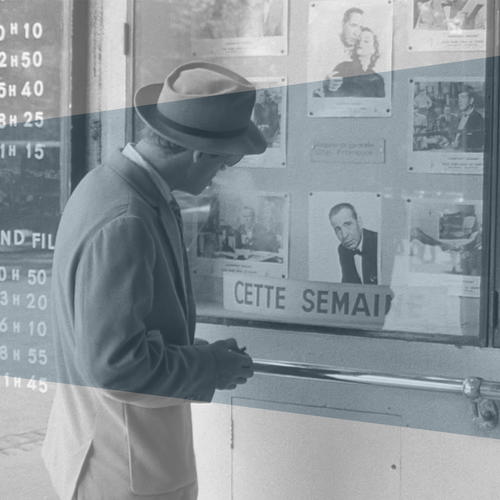Research Focus: Poetics and Politics
One of the results of our research focus Genre and Affect was that as soon as one views social reality not in a representational manner but in terms of economies of affect and communities of taste, poetological questions lead to a political dimension. Yet, how can we relate this to the fact that praxis or ‘acting’ is considered a central notion of the political while poiesis or ‘making’ usually is not?
We used Richard Rorty’s concept of a permanent interlocking of self-description and acting in order to explore the possibilities and limits of a comprehension of politics that is necessarily attached to poiesis.
In detail, we aim at the question of how the poetics of audiovisual proposals of a commonly shared world relate to processes of political community-building. More generally put, this implies a connection of poetics and politics that is transformative and can only be grasped in specific configurations that are themselves objects of a “making.“ How do forms of poetic making set up the conflict areas of community by simultaneously bringing to mind possible options of political action, whether as affirmations of hegemonic forms of communitization or as polemic interventions?
After having concentrated on concepts frequently discussed in our own previous work and in film studies in general (this concerns metaphor and cognition, as well as the notion of genre), we needed to broaden our focus on adjacent fields of study.
To examine our hypotheses and questions regarding the relation of poiesis and praxis in the work of Aristoteles, historical constellations of poetics and politics as well as more recent political theories, we invited an interdisciplinary group of fellows. While we were not interested in incorporating the whole spectrum of political theories, we wanted to concentrate on the political dimension of poiesis as derived from our earlier results. Together with philologists and philosophers like Martin Vöhler, Jan Völker, Anke Hennig, Oliver Lubrich, James McFarland, Barbara Hahn, Gesa Frömming and Ingo Kieslich (among others), we had group discussions on texts and concepts that needed precise analysis and differentiation concerning their systematical and historical dimensions. Additionally, we used this conceptual work to reassess our theoretical reflection on the practice of a poiesis of viewing films by comprehensively analyzing the films of Steve McQueen.
Rather than pinpointing a definitive concept of poiesis and political acting, we strove to understand the manifold discursive fields of poiesis and praxis, poetics and aesthetics in order to theoretically support our aim of thinking with film. In doing so, a certain historicity and diversity in the notion of poiesis became visible that – even in Aristotle’s writings – only emerges in strained constellations. Also, we found out that most historical as well as recent positions limit the question of poetics and politics to models of speaking, listening, writing, and reading. This confirmed the necessity to completely re-evaluate these positions instead of simply applying them to audiovisual images. Additionally, it seemed appropriate to avoid the artificial, normative separation of poiesis and poetics as well as between poetics and aesthetics.
We were able to work out a notion of poiesis which focuses on the dimension of thinking and acting in concreto and with regard to poetic making. In addition to Rorty, Hannah Arendt served as an important reference point, as her work links philosophy with political theory and criticizes a mode of thinking that is not concerned with the reification and possibilities of plurality in acting and making. Our discussions on Arendt and especially her Kant lectures formed the main topic of our second and third Cinepoetics symposion in which we examined her notions on poetic thinking and judgment as a connecting piece between questions of poetics and a determination of the political. In judgment one can find an answer to the question whether a scheme of the world created through poetic making is valid: Does it concern an affective feeling of self in a way that is not just subjectively valid but claims to hold true for everyone who shares this world? Thus, we validated our hypothesis that judgment can be defined as an agent of political thinking but also as opening up a space of historical experience.
The results of our research focus have been published in the following volumes of our Cinepoetics book series:
Hermann Kappelhoff: Genre und Gemeinsinn. Hollywood zwischen Krieg und Demokratie (2016)
Hermann Kappelhoff: Front Lines of Community. A Postscript to Hollywood War Cinema (2018)
